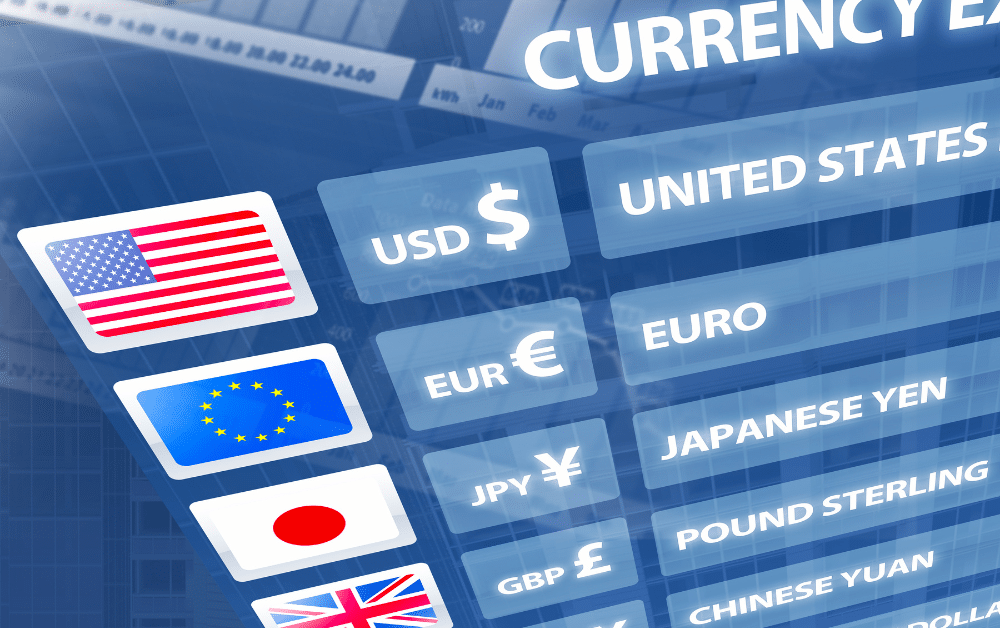Will the US Dollar Get Stronger with Tariffs? How Currency Changes Affect Your Expat Taxes

According to recent Federal Reserve data, currency fluctuations rarely change whether you owe US taxes as an expat. The two main tax protections for Americans abroad – the Foreign Earned Income Exclusion and Foreign Tax Credit – work regardless of whether the US dollar strengthens or weakens against your local currency.
But you’re probably wondering how tariff policies might affect your purchasing power and financial planning abroad. The relationship between tariffs and dollar strength has been far more complex than economic theory predicted, and the results matter for your day-to-day life as an American overseas.
The bottom line: Whether tariffs strengthen or weaken the dollar, your US tax obligations remain the same. What changes is how far your income goes in your country of residence.
Do Tariffs Actually Strengthen the US Dollar?
Economic theory suggests tariffs should strengthen the dollar, but reality tells a different story. When the US imposes tariffs, Americans theoretically buy fewer foreign goods, reducing demand for foreign currencies and supporting the dollar.
However, recent tariff implementations have produced mixed results:
Why tariffs haven’t strengthened the dollar as expected:
- Tariffs function as tax increases, and fiscal consolidation typically weakens currency
- Other countries retaliate with their own tariffs, offsetting positive effects
- Market expectations often price in policy changes before they occur
- Global economic factors outweigh trade policy impacts
The Council on Foreign Relations noted that if the US simply raised revenues through a consumption tax, no one would expect the dollar to rally. This helps explain why tariff-driven dollar strength has been limited.
How Do Currency Changes Affect Your Expat Tax Situation?
Here’s the good news: currency fluctuations don’t change your basic US tax obligations. Whether the dollar strengthens or weakens, you still have the same two powerful protections:
Foreign Earned Income Exclusion (FEIE):
- Exclude up to $126,500 (2024 tax year) or $130,000 (2025 tax year)
- Works regardless of currency exchange rates
- Best for expats in low-tax countries
Foreign Tax Credit (FTC):
- Dollar-for-dollar credit for foreign taxes paid
- Currency conversions use IRS-specified rates
- Often eliminates US tax liability completely
Example: If you earn €80,000 in Germany and the euro strengthens against the dollar, your income might convert to $90,000 instead of $85,000. But you can still exclude $130,000 under FEIE, so you owe $0 in US taxes either way.
Who doesn’t love a tax break? Download our easy-to-use excel calculator to get an estimate of how the foreign earned income exclusion can save you money.
"*" indicates required fields

What Currency Movements Mean for Your Daily Life Abroad
While your US taxes stay predictable, currency changes affect your purchasing power and financial planning:
When the dollar strengthens:
- Your US-source income goes further abroad
- American products become more expensive for local buyers (affecting expat business owners)
- US Social Security and pension payments increase in local purchasing power
When the dollar weakens:
- Local costs rise for Americans earning in USD
- Expat businesses selling to local markets become more competitive
- Foreign investments gain value when converted to dollars
Many successful expat entrepreneurs plan for currency volatility by maintaining accounts in multiple currencies and pricing services strategically.
Will Tariffs Make the US Dollar Weaken in 2025?
Goldman Sachs Research expects US tariffs to weaken the dollar as GDP growth slows. Several factors support this prediction:
Forces pushing the dollar down:
- Continued tariff implementation shows diminishing returns
- Potential economic slowdown from trade disruptions
- High fiscal deficits are putting pressure on the currency
- Possible Federal Reserve policy adjustments
Forces supporting dollar strength:
- Continued US economic outperformance relative to other countries
- Higher interest rates compared to major economies
- Safe haven demand during global uncertainty
- Productivity gains from domestic production shifts
The key takeaway: currency predictions are notoriously tricky, even for professional economists.
How Should Expats Plan for Currency Uncertainty?
Smart expat financial planning accounts for currency volatility without letting it create anxiety:
Diversification strategies:
- Maintain accounts in both USD and local currency
- Consider the currency mix of your income sources
- Plan major purchases around favorable exchange rate periods
Tax planning considerations:
- Currency gains on foreign bank accounts may trigger reporting requirements
- Business owners should understand how currency affects their US tax calculations
- Investment income in foreign currencies requires careful record-keeping
If you’re behind on filing, currency changes don’t affect the Streamlined Filing Procedures. You can still catch up with minimal penalties regardless of exchange rate movements.
What About Business Owners and Currency Risk?
Expat entrepreneurs face unique challenges when currency values shift:
- Export businesses: A stronger dollar makes your US-based products more expensive for foreign buyers, potentially reducing sales.
- Local service businesses: A weaker dollar can make your services more competitively priced against local competitors.
- Import businesses: Currency strength affects your cost of goods sold and profit margins.
The proposed changes to international tax rules may provide additional planning opportunities for expat business owners, regardless of currency movements.
Does Currency Volatility Affect Your US Tax Deadlines?
Your filing deadlines remain the same regardless of currency fluctuations:
- June 15 automatic extension for expats
- October 15 final deadline
- FBAR deadline: April 15 (extended to October 15)
Currency conversion for tax purposes uses IRS-accepted exchange rates, not the rates on the day you file your return.
The Peace of Mind Approach to Currency and Taxes
At Greenback, we’ve learned that successful expats don’t try to predict currency movements – they plan for multiple scenarios. Your US tax strategy should remain consistent and compliant whether tariffs strengthen or weaken the dollar.
Next Steps for Currency-Conscious Expats
If currency volatility has you concerned about your tax situation:
- Review your current tax strategy to ensure it works regardless of exchange rate changes
- Consider both FEIE and Foreign Tax Credit to optimize your tax position
- Plan for currency exposure in your business and investment decisions
- Stay current with filing requirements to avoid complications during volatile periods
Currency markets will continue fluctuating regardless of tariff policies. What you can control is having a robust expat tax strategy that provides peace of mind in any economic environment.
Have questions about how currency changes might affect your specific tax situation? Contact us, and one of our customer champions will gladly help. If you need specific advice on your tax situation, click below to get a consultation with one of our expat tax experts.
This information is provided for educational purposes and should not be considered tax advice. Currency and tax situations vary significantly among expats. For guidance specific to your circumstances, consult with a qualified expat tax professional.
